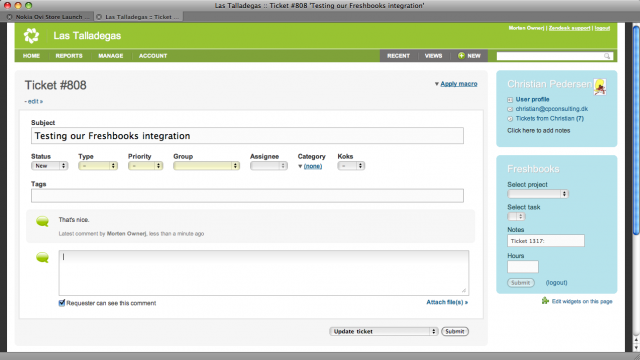Cloud-based software has risen considerably over the last decade, to the point where nearly every business relies on cloud-based services to run parts of their operations. One of the earliest movers in the cloud space was Salesforce.com, which aimed to unseat the likes of SAP and Oracle in the CRM market. Today, Salesforce.com has revenues of around $3 billion, 10,000 employees around the world, and a range of products beyond CRM.

The rise in the cloud has made software less expensive and more available to everyone. Before, there would be considerable one-off expenses to integrating and deploying a new piece of enterprise software, not to mention all the risk that comes with making the wrong decision. Today, most of the fixed costs are removed, and businesses typically pay a monthly fee depending on their usage. Not only does this make the one-off costs lower, it makes software available to everyone that was previously only available to the biggest of businesses.
Cloud-based software typically runs in the browser, and it makes it so much easier for businesses to deploy. Typically, employees only need a username and password and then they’re ready to get started. In the past, you would need to worry about compatibility with operating system versions, licensing issues and all the other things that the cloud has helped us forget about.
Just like the way Salesforce.com managed to capture share in the CRM market, the rise of the cloud has disrupted so many other industries as well. In the workflow area, we have seen the rise of iDatix workflow automation. Companies can unite all their disparate business data and design business processes and workflows to save time and money.
Frequently, we are seeing more focused products with the rise of cloud-based services. Freshbooks, for example,primarily focus on helpingsmall businesses send invoices. MailChimp focuses just on helping businesses to send email marketing. In the past, these types of services would have been rolled up into bigger product offerings, but today we see much more examples of streamlined, focused products.
We are also seeing a rise in software that is focused at the small business owner. In the past, business software was sold in a very time-intensive way. The software provider would travel to meet the client, help them integrate the software into their system and so on. In other words, it was unaffordable to sell software for low amounts of money. Today, online marketing is making it efficient to sell products to small businesses, and to charge on a per-person or per-use basis. Now small businesses are being able to take advantage of the kind of software that was once only available to much larger businesses.

Zendesk is one example of a cloud-based company that aims to make its product available to everyone. The company provides a help desk system, and it charges on a per-agent basis. There are no one-off costs and business pay around $30 to $130 per month for an agent, irrespective of how many agents they have. The cost is the same regardless of the size of the business.

Leave a Reply